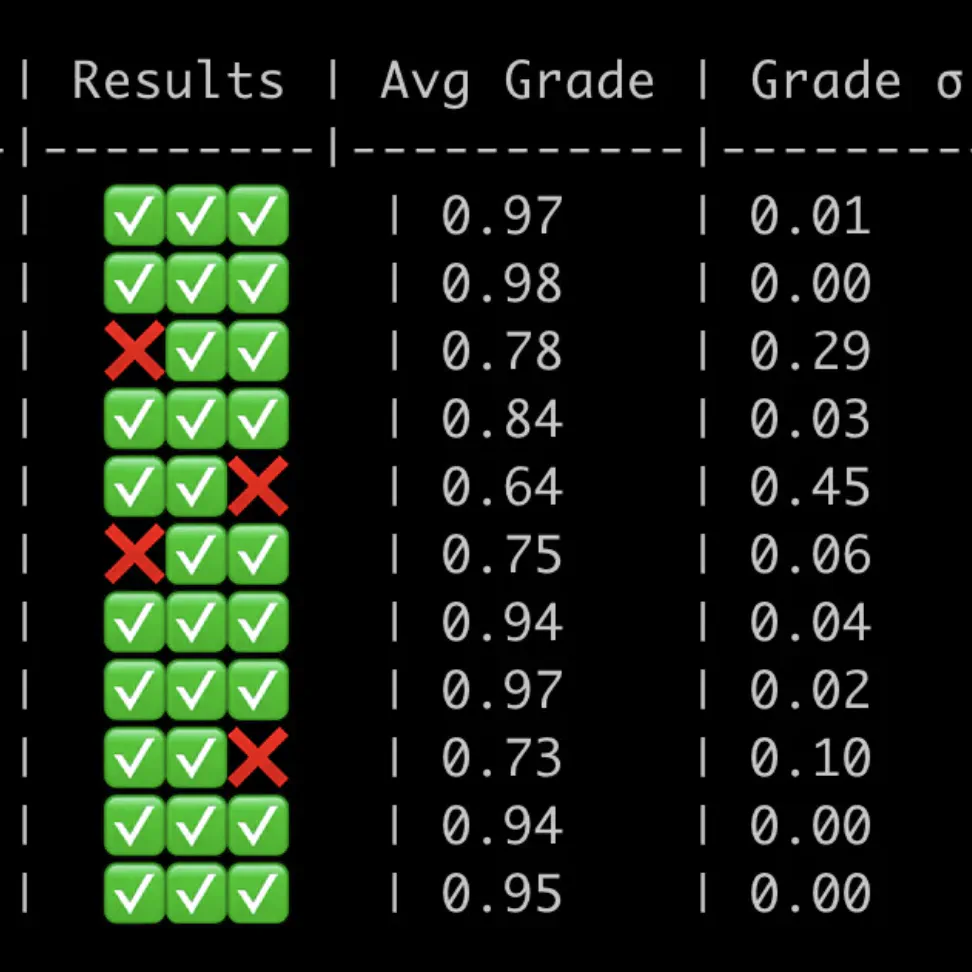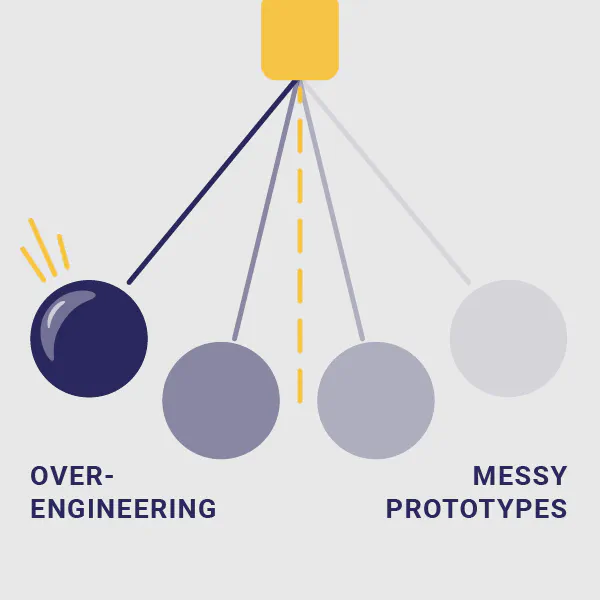Blog Posts
- Home /
- Blog Posts

Durable Background Execution with Go and SQLite
A DNS outage is like a flash flood. It hits you and disappears as if it were never there. “It was probably the DNS” became a meme. But, half the time, we do not know the exact cause. The outage is seldom long enough to diagnose, sequester, replicate, simulate, and test the failure conditions. How can we be certain that this type of failure will not compromise our systems again in the future?

SQLite Pub/Sub, Quickstart, and more — Watermill 1.5 Released
It’s been almost a year since the last Watermill release post, and we have a bunch of news to share! In case you’re new here, Watermill is a Go library for building event-driven applications the easy way. It’s like an HTTP router but for messages. Watermill is a library, not a framework, so there’s no vendor lock-in. Watermill is now close to 9k GitHub stars and 79 contributors, just on the main repository.

Shipping an AI Agent that Lies to Production: Lessons Learned
The peak of hype isn’t the best moment to reflect on AI. Will it take your job, or is it the next fad like NFTs? Are AI startups ridiculously overvalued, or are the companies that sleep on AI doomed? Time will tell. LLMs are far from perfect, but I’m excited they’re here anyway. Not because of a silly promise to make me 10x more productive, but because they can solve some problems that were previously unsolvable.

Iteration #1: "Go Faster"
We registered Three Dots Labs as a company in 2014, hoping to quit our jobs soon to work on our products. The “soon” turned into ten years of launching side projects and working evenings and weekends. We finally decided to take the leap last year, and we plan to share how it’s going. If you’re in a similar spot, you may find it helpful.

We quit our jobs to help people write software more mindfully
Leaving a principal software engineer role while having a newborn kid, a mortgage to pay, and a house being built may not sound like the best idea. Still, I took a significant pay cut so I could make a living by educating people about software. Some people literally told me that I’m crazy. Well, Miłosz (the co-founder of this blog) and I decided to build a company we love to work at without VC funding.

The Over-Engineering Pendulum
I used to picture my dream job as this: I work for an early-stage startup that recently raised a round. The business idea is promising, there’s much to build, everything seems possible, and we have time to prove the product-market fit. I join as the first engineer, lay the foundations, and pick the tech stack. Can you imagine a better gig?

Watermill 1.4 Released (Event-Driven Go Library)
It’s Autumn over here, and it usually means another release of Watermill! 🍂 It’s hard to believe it’s already been five years since the v1.0 release. In case you’re new to Watermill, here’s TL;DR. Watermill is a Go library for building message-driven or event-driven applications the easy way. Think of it like an HTTP router but for messages. It’s a library, not a framework, so you don’t need to change your architecture to use it.

Optimising and Visualising Go Tests Parallelism: Why more cores don't speed up your Go tests
Recently, I struggled for a couple of hours to understand why the API tests of one project were slow. In theory, we designed tests to run in a fully parallel way – the duration of tests should be close to the longest-running test. Unfortunately, the reality was different. Tests took 7x longer than the slowest test without using 100% available resources.

Distributed Transactions in Go: Read Before You Try
In the previous post, I looked into running transactions in a layered architecture. Now, let’s consider transactions that need to span more than one service. If you work with microservices, a time may come when you need a transaction running across them. Especially if the way they are split was an afterthought (the unfortunate but likely scenario). Service A calls service B, which calls service C, and if something goes wrong at the end, the system becomes inconsistent.

Database Transactions in Go with Layered Architecture
As I join a new company, I often feel like an impostor. After all the interviews, they really seem to know what they’re doing. I’m humbled and ready to learn from the best. On one such occasion, a few days in, I dealt with a production outage and asked the most senior engineer for help. They came to the rescue and casually flipped a value in the database with a manual update.
Series
Popular articles
- The Go libraries that never failed us: 22 libraries you need to know
- Safer Enums in Go
- Common Anti-Patterns in Go Web Applications
- How to implement Clean Architecture in Go (Golang)
- The Repository pattern in Go: a painless way to simplify your service logic
- Introduction to DDD Lite: When microservices in Go are not enough
Tags
- go
- golang
- watermill
- ddd
- events
- software-development
- domain-driven design
- event-driven
- clean-architecture
- web-applications
- anti-patterns
- architecture
- ci
- firestore
- cloudrun
- gcloud
- googlecloud
- microservices
- serverless
- testing
- advanced
- backend
- databases
- devops
- firebase
- gitlab
- reactive
- repository
- ai
- basics
- building-business-applications
- building-in-public
- cqrs
- frameworks
- kafka
- mysql
- nats
- pipelines
- scalability
- software-architecture
- transactions
- agents
- amqp
- authentication
- balance
- bounded-context
- c4
- cicd
- code-quality
- code-review
- complexity
- design-patterns
- development-process
- diagrams
- docker
- dry
- e-book
- efficiency
- enums
- event-storming
- gamedev
- generics
- google-cloud
- grpc
- htmx
- intermediate
- iteration
- javascript
- learning
- libraries
- llm
- metrics
- modular-monolith
- monolith
- open-source
- openapi
- over-engineering
- overengineering
- parallelism
- product-engineering
- productivity
- programming-languages
- prometheus
- pull-requests
- python
- rabbitmq
- retrospective
- security
- software-design
- sql
- sse
- startups
- strategic-ddd
- swagger
- terraform
- tips
- unpopular-opinions
- versioning
- work-culture